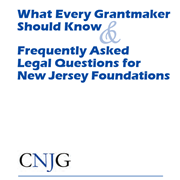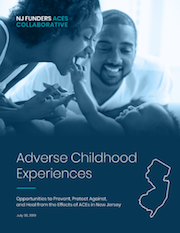Site Search
- resource provided by the Forum Network Knowledgebase.
Search Tip: Search with " " to find exact matches.
 Family Philanthropy Online
Family Philanthropy Online
In partnership with the National Center for Family Philanthropy, CNJG members have complimentary access to Family Philanthropy Online — a web-based knowledge center that provides practical advice and knowledge on a variety of relevant topics. Continually updated, the site provides members with access to the latest resources to inform their philanthropic efforts. Logged in CNJG members may access Family Philanthropy Online directly from our website through our members-only portal.
*The use of FP Online is only available to CNJG staff and family foundations. Community foundations, philanthropic consultants, and professional advisors must subscribe themselves.
Family Philanthropy Webinars
Every second Thursday of the month, CNJG members have the opportunity to participate in interactive webinars featuring presentations and Q&A sessions with nationally recognized experts in areas of family philanthropy, also presented in partnership with the National Center for Family Philanthropy. These webinars are free for CNJG members. You can access the registration page for these webinars from the CNJG website. Please note, registration for these webinars is separate from CNJG’s website. Directions on how to register are available on CNJG’s website page for each webinar. Our online tutorial has directions on how to register for a NCFP webinar.
Please note: only webinars that are indicated for “members of one of our Family Philanthropy Online Partner Communities” are free for CNJG family foundation members. NCFP offers many different webinars for various audiences. If you don’t see that phrase in their price description, you may not be able to attend that webinar. If you have any questions, please contact Craig Weinrich.
General Operating Support or General Project Support
Affirmation: Funds with the least restrictions are the most valuable
Nonprofits maintain and strengthen their organizations when their funds are unrestricted. Data shows flexible and reliable funding increases impact when nonprofit leaders have control over how funds flow to meet the needs of their constituents and internal operations, as demonstrated during the pandemic when funders released previously restricted funding. General operating support (GOS) funding signals trust in our partners and can open more honest dialogue about meeting the mutual goals of the funder and nonprofit. Funders who make project or program grants should trust the organization and provide flexible funding within a specific program.
Activities
• Over the short term, funders aim to shift their GOS activity by 30%. (30% more grants shift from program to GOS, or from fully restricted to negotiated GOS.)
• Provide grants as unrestricted organizational general operating support. The long-term ideal is for most, if not all, grants to be 100% GOS, unless a funder is legally precluded from doing otherwise.
• For project/program grants, 100% of the grant awarded is unrestricted (negotiated GOS), applying mission-based and mutually negotiated outcomes.
• Nonprofits articulate their organizational vision, strategies and intended outcomes to funders; funders understand the models of their grantee partners and learn from them how the grantee partner's work will lead to change.
• Trust nonprofit partners to know how to best apply their funding.
• Create a shared understanding of the meaning and importance of full-cost budgeting and real-cost funding.
Short-term Outcomes
• 70% of funders are shifting some of their distribution to making general operating support grants.
• 100% of program/project grants are designated unrestricted.
Long-term Outcomes
• 100% of all grants are made without restrictions, unless limited by covenant or donor wishes in the case of community foundations.
• All nonprofits can clearly articulate their vision, strategies, outcomes, and business models to funders; and funders understand them and trust them to know how best to use their funds.
How to Begin Doing Good Better on Flexibility Learning Opportunities
• Why aren’t some funders planning to award GOS or negotiate GOS?
• Ask funders: If you participated in CNJG’s 2022 funder survey and indicated that you planned to initiate GOS, have you done so? • Why are some grants restricted?
• What would it take for funders to change?
Pre-Work
• Seek and share learning opportunities for funders, prioritizing education of foundation boards, to address the barriers to awarding GOS and understand how restricted funding undermines financial sustainability.
• For funders who already regularly provide GOS funding, educate/advocate for others to do the same.
• Learn how GOS/negotiated GOS strengthens grantee partners and the multiple ways they can use and evaluate GOS. Actively seek insights from nonprofits to reinforce the message about GOS in their funding partnerships.
• As an incremental step for funders that are not receptive to GOS, provide education about negotiated general programming support (flexible funding within a mutually agreed-upon program area, as opposed to organization-wide GOS).
• Share promising practices on evaluation of GOS and negotiated GO

This guide was designed to help the state’s philanthropic community understand their ethical, legal, and fiduciary requirements and obligations.


